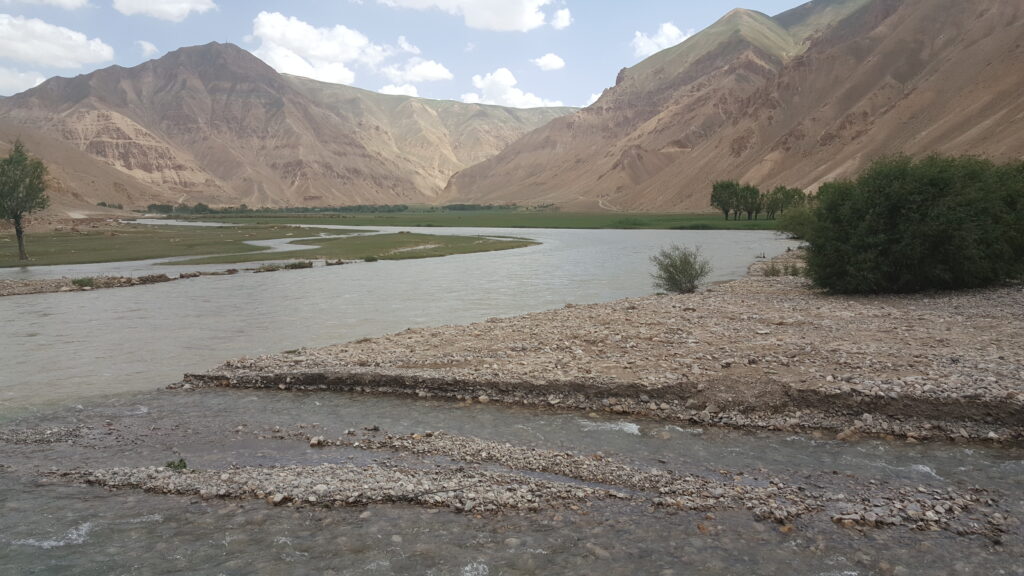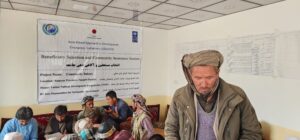Climate Changes
Climate Changes

Climate Change:
AOSD recognizes the urgent need to address climate change impacts, particularly in Afghanistan and other regions where vulnerable communities face heightened risks due to geographical, social, and economic factors. As climate change exacerbates natural disasters, drought, desertification, and extreme weather patterns, AOSD plays a crucial role in building resilient communities equipped to adapt to and mitigate these effects. Here’s how AOSD is actively working to reduce the dangers of climate change:
1. Community-Based Climate Adaptation Programs
AOSD emphasizes locally led adaptation initiatives that empower communities to manage climate risks through knowledge, skills, and sustainable practices. By engaging local stakeholders and incorporating traditional knowledge, we develop programs tailored to the unique environmental and cultural contexts of each region. Our community-based adaptation efforts focus on:
- Water Resource Management: Introducing techniques for sustainable water use, such as rainwater harvesting, and irrigation efficiency practices to address water scarcity in drought-prone areas.
- Agricultural Resilience: Promoting climate-resilient crops, organic farming, and soil conservation practices to protect livelihoods and food security.
- Climate-Smart Infrastructure: Implementing infrastructure solutions such as flood barriers, windbreaks, and erosion control structures to reduce the impact of extreme weather events.
2. Disaster Risk Reduction (DRR) and Preparedness
With increased risk of natural disasters like floods, landslides, and droughts, AOSD provides disaster risk reduction training and resources. Our DRR programs include:
- Early Warning Systems: Establishing early warning systems that notify communities of imminent natural disasters, giving them time to prepare and evacuate if necessary.
- Community Disaster Preparedness: Conducting workshops and drills that equip communities with response strategies, emergency first aid, and evacuation protocols.
- Resilient Building Techniques: Teaching and promoting construction methods that withstand local climate challenges, such as earthquake-resistant building techniques in mountainous regions and flood-resistant housing in flood-prone areas.
3. Promoting Sustainable and Renewable Energy
AOSD promotes clean energy sources to reduce carbon emissions and lessen dependency on fossil fuels, which contribute to climate change. Our renewable energy initiatives include:
- Solar Power Installations: Providing solar panels for rural households, schools, and health centers to ensure sustainable and clean energy access.
- Biogas and Improved Stoves: Introducing biogas systems and fuel-efficient stoves to reduce wood and fossil fuel consumption, helping to reduce deforestation and indoor air pollution.
- Training on Renewable Energy Maintenance: Educating local communities on the operation and maintenance of renewable energy systems to encourage long-term adoption and self-reliance.
4. Environmental Education and Awareness Programs
Educating communities on climate change, its effects, and ways to mitigate its impact is a cornerstone of AOSD’s approach. We conduct awareness campaigns, workshops, and school programs to:
- Raise Awareness of Environmental Issues: Educate the public about climate change causes and effects, deforestation, waste management, and sustainable consumption.
- Youth Engagement in Climate Action: Empower young people to be climate champions by involving them in tree planting, clean-up drives, and recycling initiatives.
- Incorporate Climate Education in School Curricula: Collaborate with schools to integrate climate and environmental studies into curricula, ensuring that future generations are informed and engaged.
5. Ecosystem Restoration and Conservation Efforts
AOSD works on restoring and preserving Afghanistan’s natural ecosystems, which are crucial for climate resilience and biodiversity. Our conservation efforts include:
- Reforestation and Afforestation: Conducting large-scale tree planting campaigns to restore degraded lands, improve air quality, and reduce soil erosion. Trees also play a critical role in carbon sequestration, helping to offset emissions.
- Protection of Water Bodies: Working with local communities to protect rivers, lakes, and wetlands from pollution and overuse, thus preserving essential water sources and wildlife habitats.
- Biodiversity Conservation: Promoting the protection of native species and ecosystems to enhance ecological resilience. Healthy, biodiverse ecosystems are better equipped to withstand and adapt to climate shifts.
6. Policy Advocacy and Collaborative Action
AOSD actively collaborates with governments, international organizations, and local stakeholders to advocate for policies that support sustainable development and climate action. This includes:
- Advocacy for Climate-Responsive Policies: Engaging in dialogue with policymakers to advocate for climate adaptation policies that consider the specific needs of vulnerable communities.
- Collaboration with UN Agencies and NGOs: Partnering with organizations like the United Nations, NGOs, and regional coalitions to align efforts, share resources, and ensure that climate action initiatives are coordinated and impactful.
- Engaging Local Leaders: Working with local leaders to ensure community support for climate adaptation projects, promoting a sense of ownership and long-term commitment to sustainability efforts.
7. Monitoring, Evaluation, and Knowledge Sharing
AOSD ensures that climate adaptation and mitigation programs are effective and scalable by employing robust monitoring and evaluation frameworks. We also focus on:
- Sharing Best Practices and Lessons Learned: Documenting and disseminating successful strategies and lessons from project implementation to inform future programs and improve climate adaptation practices.
- Continuous Improvement: Using data and feedback to adapt and refine climate programs, ensuring that they remain relevant, effective, and sustainable in response to changing environmental and social conditions.
Through these targeted efforts, AOSD plays a pivotal role in helping communities in Afghanistan and beyond build resilience against the adverse effects of climate change. Our initiatives align with the United Nations Framework Convention on Climate Change (UNFCCC) and contribute to achieving SDG 13 (Climate Action) by empowering communities, fostering sustainable practices, and advocating for policies that support long-term environmental stewardship.







Hi, this is a comment.
To get started with moderating, editing, and deleting comments, please visit the Comments screen in the dashboard.
Commenter avatars come from Gravatar.